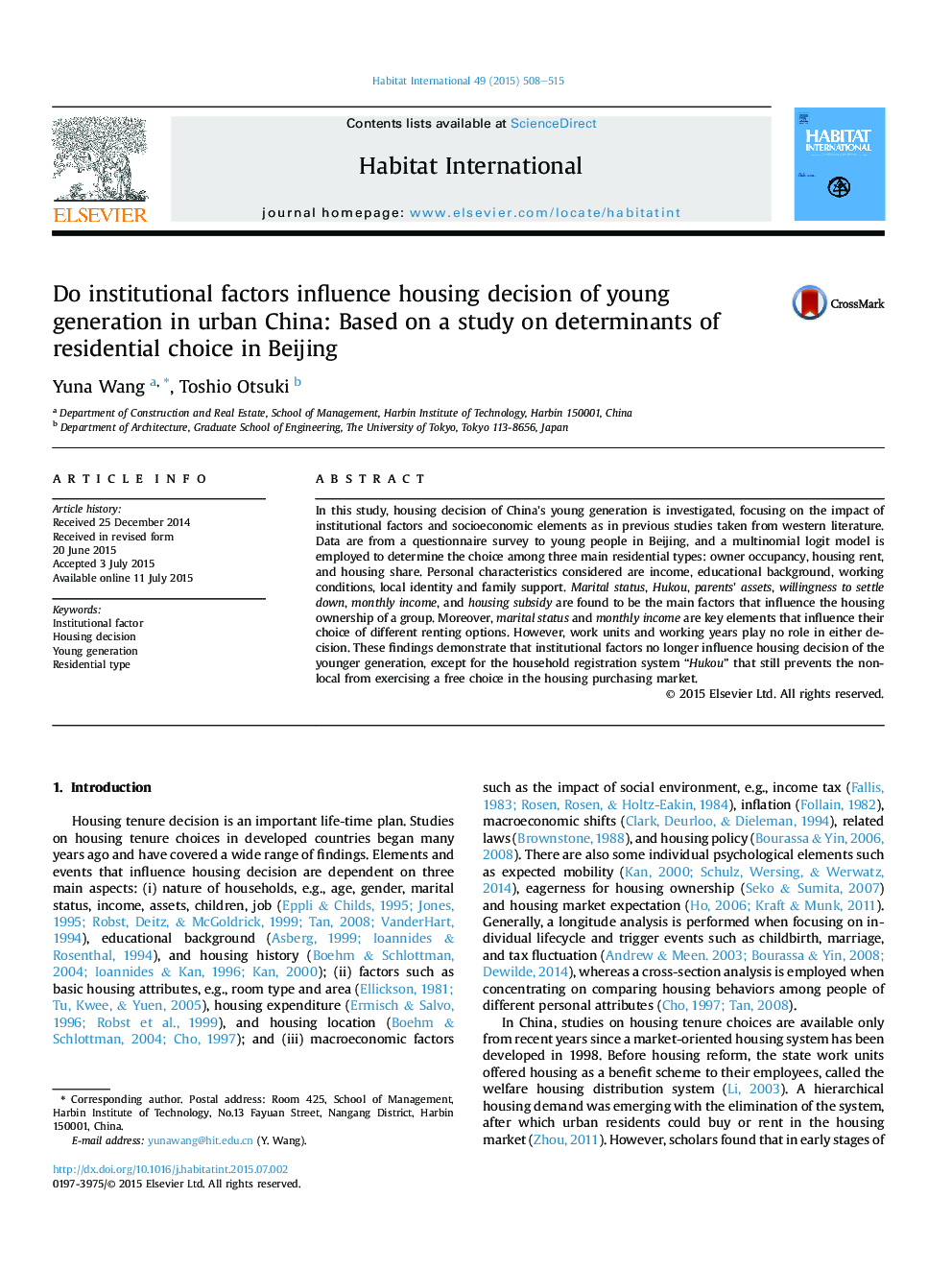| Article ID | Journal | Published Year | Pages | File Type |
|---|---|---|---|---|
| 7456338 | Habitat International | 2015 | 8 Pages |
Abstract
In this study, housing decision of China's young generation is investigated, focusing on the impact of institutional factors and socioeconomic elements as in previous studies taken from western literature. Data are from a questionnaire survey to young people in Beijing, and a multinomial logit model is employed to determine the choice among three main residential types: owner occupancy, housing rent, and housing share. Personal characteristics considered are income, educational background, working conditions, local identity and family support. Marital status, Hukou, parents' assets, willingness to settle down, monthly income, and housing subsidy are found to be the main factors that influence the housing ownership of a group. Moreover, marital status and monthly income are key elements that influence their choice of different renting options. However, work units and working years play no role in either decision. These findings demonstrate that institutional factors no longer influence housing decision of the younger generation, except for the household registration system “Hukou” that still prevents the non-local from exercising a free choice in the housing purchasing market.
Related Topics
Social Sciences and Humanities
Social Sciences
Development
Authors
Yuna Wang, Toshio Otsuki,
